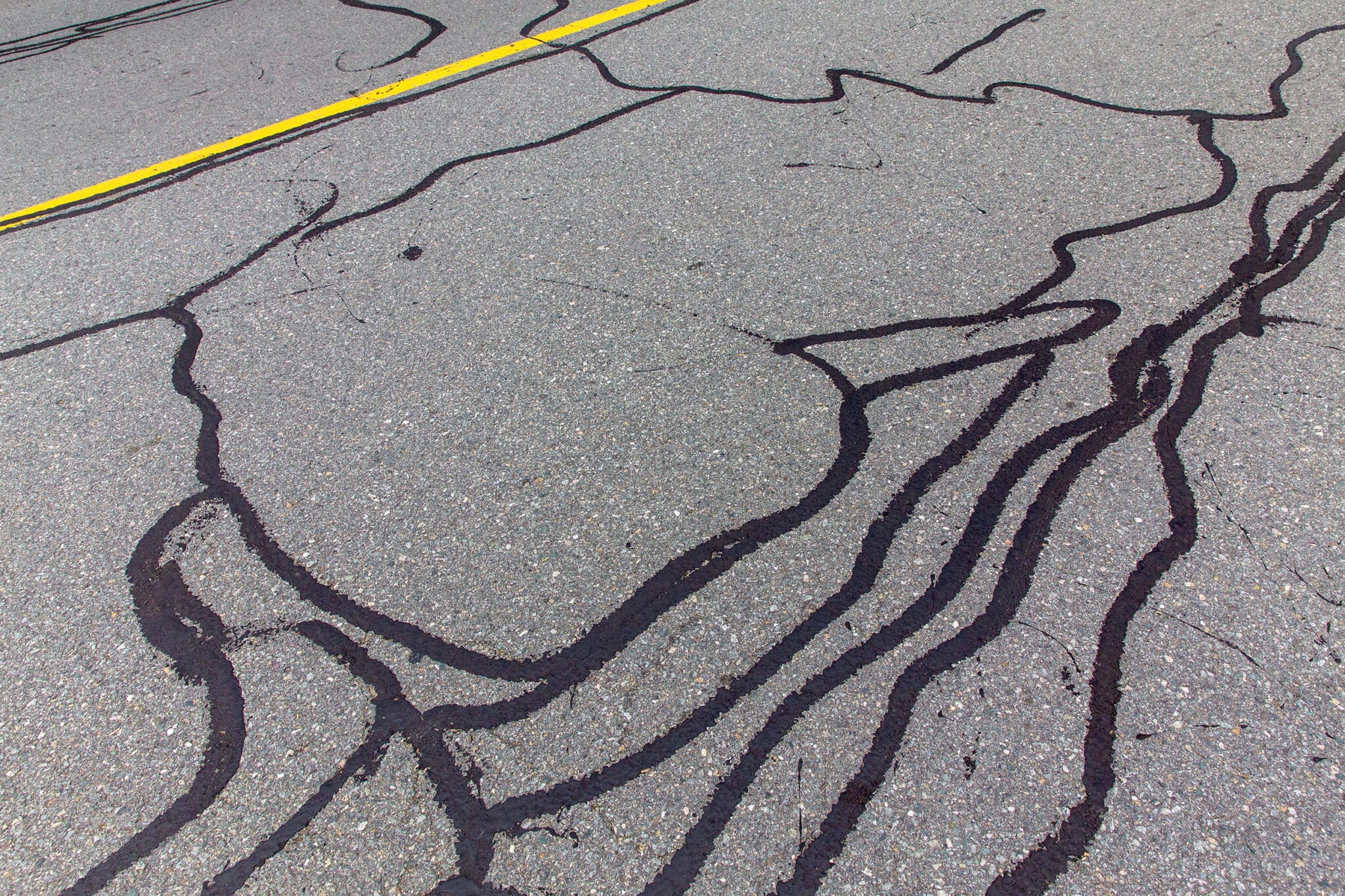Unlock the Secrets of Asphalt Sealing: Maximizing Hot Mix Asphalt Durability
Unlock the Secrets of Asphalt Sealing: Maximizing Hot Mix Asphalt Durability
Blog Article
Hot Mix Asphalt: A Sustainable Service for Sidewalk
Hot Mix Asphalt (HMA) has actually arised as a leading sustainable choice for pavement services, offering a myriad of ingenious technologies and ecological benefits. As the need for environmentally friendly building and construction techniques grows, exploring the subtleties of HMA's sustainability can provide valuable understandings right into the future of pavement remedies.
Ecological Advantages of Hot Mix Asphalt
:max_bytes(150000):strip_icc()/barricade-tape-sealed-driveway-big-56a583145f9b58b7d0dd3d87.jpg)
In Addition, Hot Mix Asphalt aids to reduce city heat island results. Its dark color soaks up sunlight, minimizing the amount of warmth showed back right into the environment contrasted to lighter-colored pavements. This can lower ambient temperature levels in urban locations, decreasing the demand for cooling and ultimately lowering energy usage.
Furthermore, Hot Mix Asphalt adds to improved stormwater monitoring. Its permeable nature allows water to recharge and infiltrate the pavement groundwater materials, lowering drainage and the risk of flooding. These environmental advantages make Warm Mix Asphalt a lasting selection for leading roadways and freeways.
Power Performance in HMA Manufacturing
Is power effectiveness a critical factor in the production of Hot Mix Asphalt (HMA)? Absolutely. Energy plays a considerable function in the manufacturing of HMA, affecting both expense and environmental sustainability. One vital aspect of energy efficiency in HMA manufacturing is using cozy mix asphalt (WMA) technologies (regrading). WMA permits the mixing and placement of asphalt at reduced temperature levels compared to traditional warm mix asphalt, causing lowered power usage throughout production. This process not just lowers fuel usage however likewise reduces greenhouse gas discharges, making it a more eco-friendly choice.
In addition, developments in plant modern technologies have actually caused more energy-efficient HMA manufacturing processes. Modern plants are made with attributes like recycled asphalt sidewalk (RAP) processing capacities, effective heater systems, and enhanced insulation, all contributing to power cost savings. By optimizing energy use in HMA production, the industry can lower its carbon footprint while keeping premium sidewalk products. Energy performance is, for that reason, a crucial factor to consider in ensuring the sustainability of Warm Mix Asphalt production.
Recyclability of Hot Mix Asphalt
The recyclability of Hot Mix Asphalt (HMA) is a critical facet of its sustainability and long-term environmental effect. HMA is among one of the most recycled materials in the United States, with over 100 million lots of reclaimed asphalt pavement (RAP) being reused yearly in brand-new pavement this content building. Recycling HMA supplies a number of ecological advantages, such as minimizing the requirement for virgin materials, lowering power intake throughout manufacturing, and decreasing the quantity of waste sent out to land fills.
The procedure of reusing HMA entails crushing the existing pavement, squashing it into smaller pieces, and mixing it with new aggregate and asphalt binder to produce a recycled mix. This recycled mix can often carry out in addition to or perhaps much better than standard HMA, while requiring fewer resources and generating reduced greenhouse gas exhausts. By including RAP into new sidewalk tasks, roadway companies can preserve natural deposits, lower prices, and decrease the ecological impact of roadway building and construction and upkeep activities. Generally, the recyclability of HMA plays a substantial role in promoting sustainable techniques within the sidewalk market.

Long-Term Performance of HMA
Asphalt sidewalks demonstrate longevity and durability over an extensive period, mirroring the lasting performance of Warm Mix Asphalt (HMA) Additionally, improvements in HMA technology, such as the usage of polymer-modified binders and warm mix asphalt, have actually further improved the durability and durability of HMA sidewalks. By focusing on high quality building and construction and maintenance methods, HMA proceeds to show itself as a affordable and lasting solution for lasting sidewalk framework.

HMA: Toughness and Sustainability
Showing both resilience and sustainability, Hot Mix Asphalt (HMA) has actually ended up being a keystone in the building of lasting sidewalk infrastructures - angled parking. HMA's durability originates from its ability to hold up against heavy lots, severe weather, and high traffic volumes, making it a dependable selection for roadways, highways, and airport terminal runways. The make-up of HMA, which generally consists of aggregates, binder, and filler, plays a critical role in boosting its longevity and resistance to deterioration
Furthermore, HMA's sustainability exists in its recyclability and energy-efficient production process. The capacity to reuse recovered asphalt pavement (RAP) in brand-new HMA mixes reduces the demand for virgin products and decreases the environmental effect of sidewalk building and upkeep. Additionally, the energy effectiveness of generating HMA hinges on its lower blending temperatures compared to other pavement products, bring about reduced energy intake click to investigate and greenhouse gas exhausts.
Conclusion
To conclude, hot mix asphalt (HMA) offers a lasting solution for pavement with blog its environmentally friendly qualities. HMA's recyclability, energy effectiveness in manufacturing, and lasting resilience make it an environment-friendly option for roadway building. By saving natural deposits, lowering waste, and decreasing greenhouse gas exhausts, HMA plays a critical duty in advertising sustainability in framework development. Its ability to minimize city warm island impacts even more underscores its importance in producing durable and environmentally conscious pavement systems.
HMA is one of the most recycled materials in the United States, with over 100 million loads of reclaimed asphalt sidewalk (RAP) being recycled every year in new sidewalk building and construction.The procedure of recycling HMA entails crushing the existing pavement, crushing it into smaller items, and blending it with new accumulation and asphalt binder to develop a recycled mix.Asphalt pavements demonstrate resilience and strength over a prolonged period, mirroring the lasting performance of Hot Mix Asphalt (HMA) In addition, improvements in HMA modern technology, such as the usage of polymer-modified binders and cozy mix asphalt, have actually better improved the resilience and durability of HMA pavements. The ability to recycle redeemed asphalt pavement (RAP) in brand-new HMA blends minimizes the need for virgin products and decreases the environmental impact of sidewalk building and construction and upkeep.
Report this page